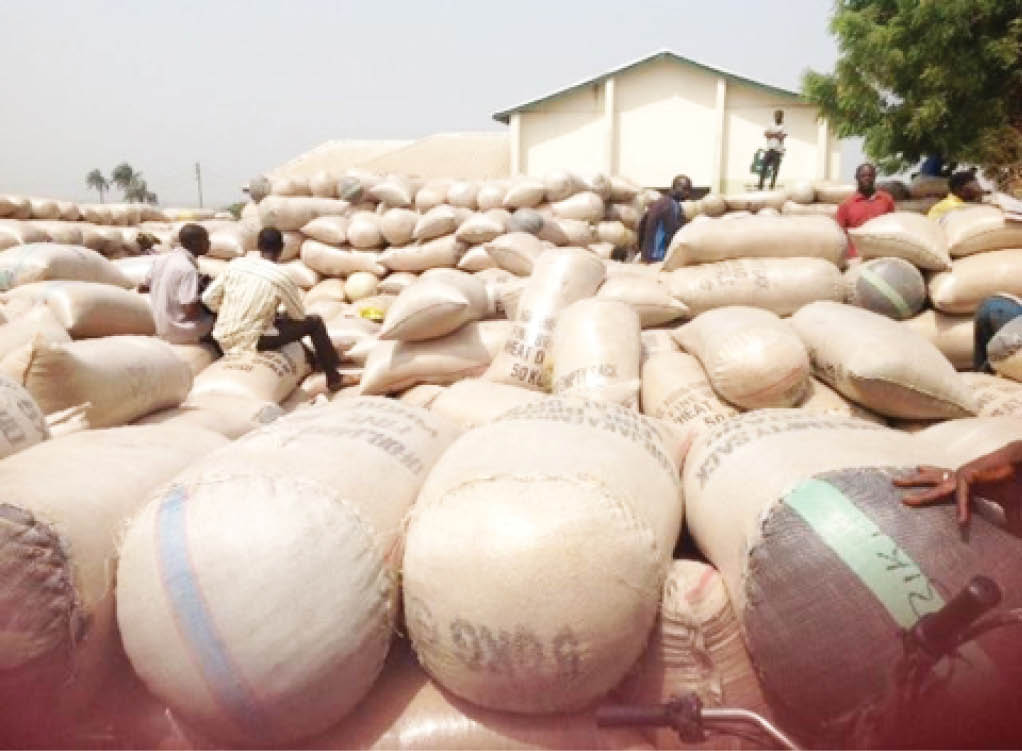Dry season rice harvest, others boost millers’ stock
Since May 29, 2023 when fuel subsidy removal was announced, it triggered more than 200 per cent rise in the cost of transportation, which affected prices of commodities across the country. The cost of diesel is also high. The situation forced many mills to shut down because of high cost of production. Many small-scale millers […]

a paddy market in katsina state
Since May 29, 2023 when fuel subsidy removal was announced, it triggered more than 200 per cent rise in the cost of transportation, which affected prices of commodities across the country. The cost of diesel is also high.
The situation forced many mills to shut down because of high cost of production.
Many small-scale millers shut down operation because they could not afford to buy paddy at high prices and pay huge transport costs, moving them from major producing areas to their mills.
Until last month when dry season harvest began, which boosted the supply in the market, forcing the price of paddy down, a metric tonne cost as much as N670,000 in some places.
Some millers could not run their mills profitably, so they shut down operation.
Our correspondents in the major milling area report that dry season harvests have boosted supply, in addition to improved diesel cost and exchange rate. And many small and medium scale mills are picking up again.
Local rice millers in Katsina State have identified Kebbi, Niger, Jigawa and Taraba states as their major source of the produce.
According to the millers, they first work with the rain-fed paddy until the month of February when they begin sourcing the irrigation produce from other states.
Ibrahim Abbas a local rice miller said they relied on states that were producing rice through irrigation farming.
“When we exhausted our rain-fed paddy around February, we then moved to Bagudo, Aljannare, Suru and Samanaji in Kebbi State, as well as some parts of Niger State to source for the produce. Most of the local areas in those states are into irrigation, using tube wells and small dams,” he said.
Abbas added that because they were operating small and medium rice milling factories, their demands were contained by local markets within the country.
“I don’t know of any local rice miller that sources his paddy outside Nigeria. We go as far as Jigawa and Taraba for our supplies,” Abbas added.
Another stakeholder in rice value chain business, Farouk Abdullahi, said large scale processors that were located in cities might be the ones supplying paddy from abroad.
“Even the large scale rice processors usually stockpile the produce in large stores during harvest period. This enables them to have enough raw material for their production all-year-round,” Abdullahi said.
He further said the recent fluctuation of naira value and acute petrol scarcity had jerked up the price of local rice in the market.
“Last Friday, 100kg of milled rice was N104,000, but in just four days, it moved to N120,000. It is same with paddy we bought at N39,000 at Suru, which is now N43,000.”
Abdullahi added that merchants from the border town of Jibia swarmed Dandume, Funtua and Bakori markets, where they moped up the produce in large quantities.
“If there is anything rice millers have been crying for in recent times, it is not how to source paddy but epileptic power supply, high cost of diesel and unstable foreign exchange,” he added.
